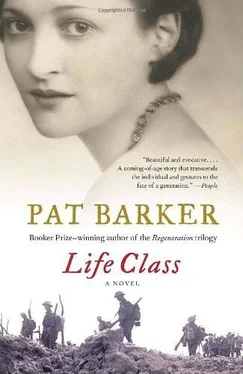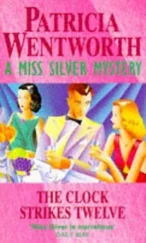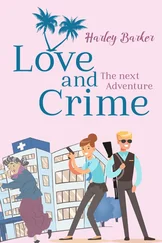The hot air of the operating theatre hits them, a solid wall Paul has to push against. There are three tables in operation. Burton, Mercer and Browne, wearing red gowns, or so it seems, are chatting to their teams and flirting with the younger nurses, unconscious of the stench of blood. The door into the sterilizing room swings open belching steamy air as a nurse carries a tray of instruments into the room.
‘Oh, my God, what’s this?’ Mercer says, looking down.
‘Shot himself,’ Sister Cope says.
Mercer purses his lips, ‘Why for God’s sake? A million Germans getting paid good money to do the job and he has to go and shoot himself. Oh, well. Get him on.’
Easier said than done. He spits, curses, struggles, finally lands a kick on Sister Cope’s breast that makes her go white. It takes six of them in the end to bind him to the table and two to force the mask down over his face. Even as the ether takes effect, he’s still straining against the straps, a torrent of mangled words spewing from his mouth.
All right,’ Mercer says. ‘I think we can start now.’
He’s standing well back, pulling irritably at the ties on his gown. He keeps glancing at the clock and pulling his mask down to wipe away the moustache of sweat that constantly forms on his upper lip. Paul doesn’t like Mercer, not that liking or disliking matter much here. He doesn’t like the pale, large, doughy face or the way his features, individually rather small and delicate, cluster together in the centre as if for safety. Mercer notices an amputated leg that hasn’t been cleared away fast enough and, in a sudden burst of fury, kicks it across the floor.
‘I need this place kept clear!’ he shouts.
Sister Cope, still white from the kick, scurries across and removes the offending limb.
Paul and Lewis watch from the back, ready to step in should the man come out of the anaesthetic fighting, as patients often do. Between other people’s shoulders, they catch glimpses of the operation. Mercer locates the bullet, extracts it, drops it, with a small, disgusted clink, into a kidney bowl and then manoeuvres the eyeball back into its socket.
‘All right.’ He straightens up, presses one hand hard into the small of his back, leaving a red print on the white cloth. ‘What’s next?’
He’s marginally better tempered now because he feels he’s done a good job, as no doubt he has. Paul and Lewis come forward, unbuckle the straps and lift the man on to the stretcher.
‘Through there,’ Paul says, nodding at the door behind Lewis.
Lewis backs out into the cold corridor. Immediately, they both begin to shiver. Within a few seconds Lewis is shaking uncontrollably, whether from cold or shock it’s hard to tell. If it’s shock, Paul doesn’t want to know. Keep the patient warm, that’s all that matters. ‘ Move,’ he says. Lewis backs away down the corridor.
They deliver their unconscious burden to the recovery ward, his restored eye gazing sightlessly up at them, and leave him there.
‘What’ll happen to him?’
‘He’ll be shot.’
Lewis gapes. ‘I don’t believe it.’
‘’ Course he will, suicide counts as desertion.’
‘But that’s mad. Why not just let him die?’
‘Pour encourager les autres.’
They’re standing in the weed-thronged yard, by the pile of railway sleepers.
Paul looks at Lewis with a mixture of pity and exasperation. ‘I think you’re allowed a cigarette before we go back.’
Lewis shakes his head, then lights one anyway, remembering, a second later, to offer the packet.
‘No, I won’t, thanks.’ Paul waits, watching the dry, fleshy mouth drag on the cigarette. ‘Look, that was a bad business in there. But it’s not typical.’
‘What I don’t like is that we’re part of it.’
‘Of what?’
‘Sending him back to be shot.’
‘What’s the alternative? Let him die?’
‘It’s what he wants.’
‘Well, if you’re going to start letting them do what they want … Most of them want to go home.’
‘And I’d let them.’
‘Then it’s just as well you’re not in charge.’
Lewis is already stubbing out his half-smoked cigarette. ‘Come on, we’d better be getting back.’
He sets off at his loping pace across the waste ground, his boots flashing silver drops of rain. Paul follows at a slower pace. He hasn’t had time to sort out his own reactions. He’s been too busy coping with Lewis. Now he finds it difficult to tell which are Lewis’s feelings and which his own. He feels as if he’s been crowded out of his own mind.
But then, that’s the question. Should you even pause to consider your own reactions? These men suffer so much more than he does, more than he can imagine. In the face of their suffering, isn’t it self-indulgent to think about his own feelings? He has nobody to talk to about such things and blunders his way through as best he can. If you feel nothing — this is what he comes back to time and time again — you might just as well be a machine, and machines aren’t very good at caring for people. There’s something machinelike about a lot of the professional nurses here. Even Sister Byrd, whom he admires, he looks at her sometimes and sees a robot. Well, lucky for her, perhaps. It’s probably more efficient to be like that. Certainly less painful.
Throwing his cigarette away, he follows Lewis into the building.
Elinor to Paul
You say you don’t want to burden me with the horrors but you mustn’t hold back because of me. I want to know everything and anyway, why should I be sheltered? I feel the same kind of guilt when I tell you about the Slade and painting and parties in Gordon Square. (Where I’ve been invited twice now.) You have so little time and probably by the end of the day so little energy and nobody to talk to about the things that really matter and I have so much of all these things. Are you managing to do any work at all? You know what I mean — your own work? If you’ve got the hut to yourself isn’t it possible to do a bit in the evenings?
I carry your photograph around with me everywhere. At home — ‘home’ meaning Gower Street — it’s on the bedside table where I can see it when I wake up but here I have to keep it in a drawer in case Mother comes in. She’s always on the lookout for what she calls ‘the One’. She wants me to go to her bandaging class with her this afternoon so I can witness her triumph over Mrs Bradley. Toby has received his commission and been gazetted. I’m not sure I can face it. The thought of Mrs Bradley in her camisole reclining on a chaise longue while the whole twittering first-aid class clusters round and tries to diagnose her! I’ve had enough of Mrs Bradley to last me a lifetime. She’s the one who kept making snide remarks to Mother because Toby hadn’t enlisted yet, really made her life a misery. There was a lovely moment last week when Mother got flustered and attempted to apply a tourniquet to Mrs Bradley’s neck. ‘What a stupid, stupid mistake,’ she kept saying all the way home. ‘I can’t think why I did it. I know perfectly well you don’t apply a tourniquet to a neck wound.’ Mother’s one of life’s innocents, I’m afraid. She doesn’t know ‘mistakes’ sometimes have inverted commas round them.
Paul to Elinor
You should never be afraid of telling me about your work — or the parties. The thought that there are some people out there still painting and drawing, still thinking art matters more than anything else, is one of the few things that keeps me going. That and remembering the Slade. I close my eyes sometimes and see you and Catherine walking around the quad, Catherine with her arm around your waist. How I used to envy her. And I hear Tonks shouting: ‘I suppose you think you can draw?’ That’s not so good! How is Tonks? And yes, I do manage to do a bit of drawing when I’m off duty. Or rather, I did.
Читать дальше












